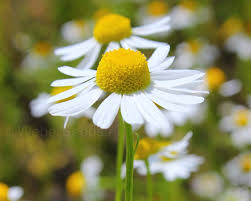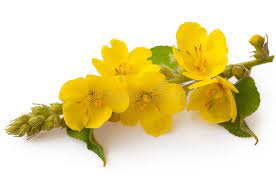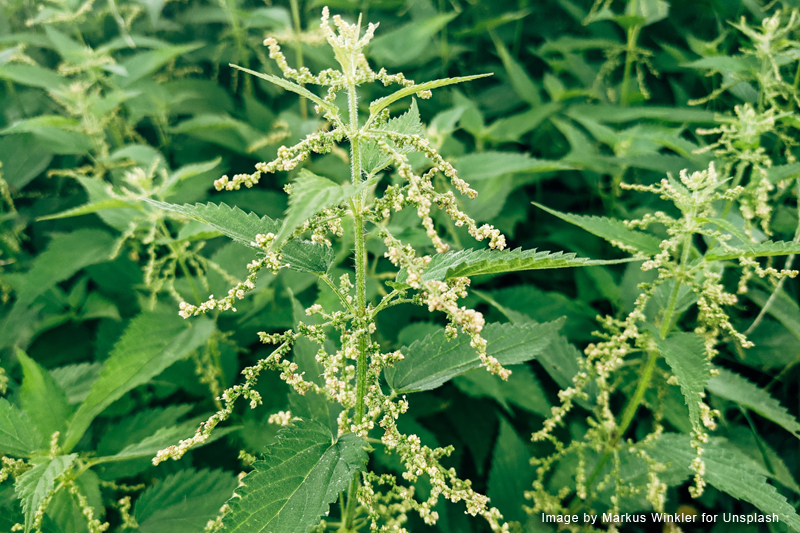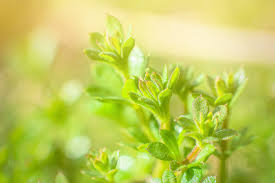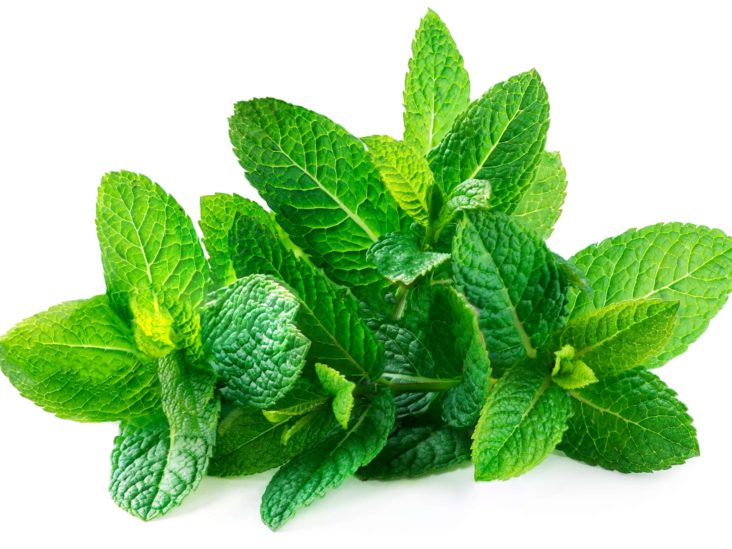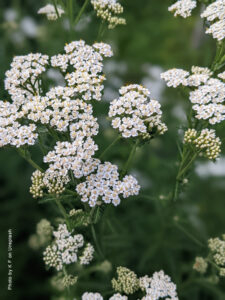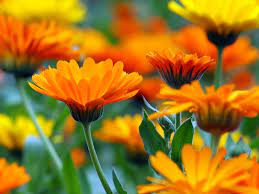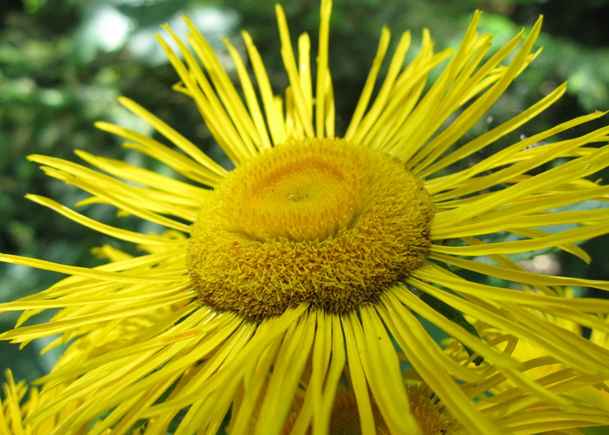Throughout equine history, horses were free to roam large areas of land. Horses have an incredible instinct to balance their regulatory processes and keep themselves healthy. Using their acute sense of taste and smell, they could intuitively pick and choose which plants were safe to eat, and which would treat their aches and ailments. Each herb is a complex collection of minerals and organic materials, some of whose ingredients are clearly discernible, medically active compounds. They exist as part of the whole and constitute a valuable medicine together, each ingredient playing a part in the balance.
You can easily plant or transplant many prolific herbs to create the best herbal pasture for your horse. Some of these may even already be growing in your fields!
Dandelion (Taraxacum Officinale)
Regular Dandelion (Taraxacum officinale) is one of the best herbs for horses! Horses will most likely eat dandelion if they are not feeling well. Dandelions are an excellent source of potassium for horses and powerful detoxifier. It will detoxify the blood and liver as well as cleanse the entire digestive tract. The plant could help reduce the pain associated with laminitis and minimize low-grade inflammation caused by arthritis. False Dandelions, known as Hyprochaeri Radicata, Hypochoeris Radicata, Flatweed, or Cat’s Ear, are known to cause stringhalt when a horse consumes too many.

Clover (Trifolium Pretense)

A wonderful addition to any herbal pasture – your horses will adore it. Both red and white clovers are medicinal. Red clover is an antioxidant, and helps your horse assimilate iron while supplying vitamin C, protein and calcium. It is also a mild phytoestrogen, and can be used to treat hormonal imbalances. In small, regular doses, red clover will have a calming effect, and can even be given to young horses.
Chamomile (Matricaria Chamomilla)
A self-sowing perennial flower that grows happily in all climates, especially those with warm, dry soils. Chamomile is useful for pain relief in horses, it has also a mild sedative effect. In addition to its calming properties, Chamomile is a general anti-inflammatory and soothes the digestive tract. The plant also contains magnesium phosphate, potassium phosphate, and calcium phosphate, which could help relieve a variety of bone and muscle ailments. The flowers are a horse favorite.
Mullein (Verbascum Blattari)
Stinging nettle (Urtica Dioica)
Nettles are only useful when they are cut and dried. Once dried, you could feed the flowers to your horse to relieve laminitis, lactation complications, liver and kidney disorders. Its primary use is as a tonic, stimulating circulation and cleansing the blood, also helping with osteoarthritis, metabolic issues, skin health, the respiratory system, pain and allergies.
Fed along with dandelion, it can tackle the urinary system too. Important source of iron, calcium, vitamin K, and other vitamins and minerals and is low in salt. This folk remedy for arthritis is highly anti-inflammatory and clears out respiratory congestion.
Cleavers
There are many different varieties that thrive throughout North America: in the East – Galium aparine, and in the West – Galium orizabense. A strong lymph detoxifier and a simple remedy for urinary and bowel irregularities. Recent studies have shown that cleavers is a mild anti-inflammatory with antitumor properties, and that it can effectively lower blood pressure. With “weeds” like cleavers in your pasture, your horse can effectively soothe many of its own discomforts.
Peppermint (Mentha Piperita)
Peppermint is both calming and invigorating. It rejuvenates the system while taking the edge off stress and nervousness. This herb is a winter must-have for colic-prone horses, because it helps normalize digestion. Adding fresh peppermint to your horse’s next meal could help relieve the symptoms of an upset stomach, primarily by relaxing the muscles in the digestive tract. Peppermint is also useful when applied to irritated, but not broken, skin, and makes an excellent pest-repellent!
Yarrow (Achillea Millefolium)
Horses love the taste of dried yarrow flowers and leaves, which are a general tonic and a boon to the immune system. Applying the yarrow flower topically could help heal bruises. Yarrow leaves (fresh) can be used as a poultice on wounds to stop bleeding quickly and effectively; ingested, they will help stop internal bleeding. Achillea Millefolium contains several toxic compounds which can cause harm to horses that eat large quantities of this plant. These compounds can include glycoalkaloids (notably the glycoalkaloid achilline), monoterpenes, and lactones.
Marigold (Calendula)
Marigold, otherwise known as Calendula flowers, they help keep pests and bugs away. When consumed, marigold can support your horse’s skin health. A tea from the Marigold flowers help improve skin wounds. This herb also supports a horse’s digestive health, acting as a tonic detoxing agent. flowers and use this tea to help improve skin wounds. Avoid the Marsh Marigold, which could prove toxic to horses.
Elecampane (Inula Helenium)
Elecampane is anti-inflammatory, antibacterial, expectorant, antioxidant, restorative and in the form of hot tea can be diaphoretic. Inula is also known for being a vermicide for intestinal parasites. Lung Support: Elecampane is often used for coughs with yellow green mucous, and acute or chronic coughing. Long term use of elecampane is associated with supporting and strengthening the lungs.
Antibacterial for Wounds: Elecampane is used for dressing wounds to prevent infection. Another common name for Elecampane is scab wort, because it promotes a scab to form and reduces proud flesh. The ground powdered root can be applied topically as a poultice to promote healing.
Digestive Bitter: The roots of Elecampane have a bitter flavor that stimulates digestion and long-term use can strengthen the immune system. Elecampane has a high content of inulin that is a prebiotic supporting growth of beneficial bacteria in the digestive tract. Lymphatic stagnation is improved with the use of Elecampane as it has an affinity to move out old stuck phlegm and improve absorption of nutrients in the gastrointestinal tract. Parasites: Elecampane is added to many herbal blends for its vermicide actions against intestinal parasites such as amoebas like giardia, protozoa, pathogenic bacteria, and pinworms. As a member of the sunflower family, Elecampane bring sunlight and nourishing support to your horses, helping them to overcome long held grief or fear. Elecampane would be a wonderful plant to include in your herbal garden. It brings the joyful strength and energy to you and your horses.
It is important to remember that contact with toxic plants can be reduced and often eliminated by maintaining your pasture to prevent overgrazing. As long as horses have enough grass to eat they will be highly unlikely to eat potentially poisonous weeds in the pasture.
The following websites contain information on poisonous plants in Canada:
References
Books:
- Equi-Spa. “Ancient Herbal Wisdom for Natural Horse Care”.
- Christopher Day “Natural Remedies”.
- Meredith L. Snader, Sharon L. Willoughby “Healing your Horse. Alternative Therapies”.
Links:





